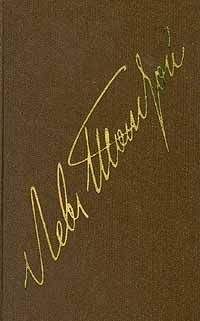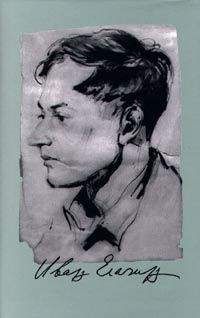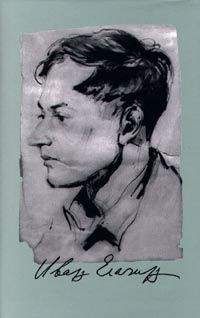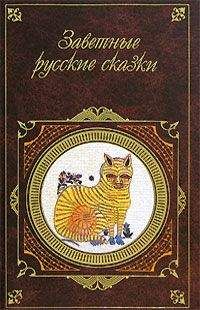Альфред Теннисон - Волшебница Шалотт и другие стихотворения
В. Генке
THE BLACKBIRD
О Blackbird! sing me something well:
While all the neighbours shoot thee round,
I keep smooth plats of fruitful ground,
Where thou may’st warble, eat and dwell.
The espaliers and the standards all
Are thine; the range of lawn and park:
The unnetted black-hearts ripen dark,
All thine, against the garden wall.
Yet, tho’ I spared thee all the spring,
Thy sole delight is, sitting still,
With that gold dagger of thy bill
To fret the summer jenneting.
A golden bill! the silver tongue,
Cold February loved, is dry:
Plenty corrupts the melody
That made thee famous once, when young:
And in the sultry garden-squares,
Now thy flute-notes are changed to coarse,
I hear thee not at all, or hoarse
As when a hawker hawks his wares.
Take warning! he that will not sing
While yon sun prospers in the blue,
Shall sing for want, ere leaves are new,
Caught in the frozen palms of Spring.
ЧЕРНЫЙ ДРОЗД
О дрозд, пропой мне что-нибудь!
Из местных жителей лишь я
На птиц не завожу ружья,
Убытка не боюсь ничуть.
Здесь корм найдешь ты и жилье,
Всё, от забора до крыльца:
Кусты, лужайки, деревца,
Шпалеры, грядки — все твое.
Но где же песни? Ты молчишь;
По целым дням, блаженно рьян,
Облюбовав свой «джонатан»,
Сидишь и яблоко долбишь.
Не стыдно, клювик золотой?
Как чудно прежде ты певал!
Замолк в довольстве и пропал
Твой звонкий голос молодой.
От вдохновенья ты отвык;
Лишь после множества потуг
Выходит хриплый, резкий звук —
Торговца уличного крик…
Опомнись, баловень и мот!
Кто нем, пока щедра земля,
Тот поневоле запоет
В холодных лапах февраля.
Г. Кружков
TO —,
AFTER READING A LIFE AND LETTERS
‘Cursed be he that moves my bones.’
Shakespeare's Epitaph.You might have won the Poet’s name,
If such be worth the winning now,
And gain’d a laurel for your brow
Of sounder leaf than I can claim;
But you have made the wiser choice,
A life that moves to gracious ends
Thro’ troops of unrecording friends,
A deedful life, a silent voice:
And you have miss’d the irreverent doom
Of those that wear the Poet’s crown:
Hereafter, neither knave nor clown
Shall hold their orgies at your tomb.
For now the Poet cannot die,
Nor leave his music as of old,
But round him ere he scarce be cold
Begins the scandal and the cry:
‘Proclaim the faults he would not show:
Break lock and seal: betray the trust:
Keep nothing sacred: ’tis but just
The many-headed beast should know.’
Ah shameless! for he did but sing
A song that pleased us from its worth;
No public life was his on earth,
No blazon’d statesman he, nor king.
He gave the people of his best:
His worst he kept, his best he gave.
My Shakespeare’s curse on clown and knave
Who will not let his ashes rest!
Who make it seem more sweet to be
The little life of bank and brier,
The bird that pipes his lone desire
And dies unheard within his tree,
Than he that warbles long and loud
And drops at Glory’s temple-gates,
For whom the carrion vulture waits
To tear his heart before the crowd!
К ***,
ПОСЛЕ ПРОЧТЕНИЯ «ЖИЗНИ И ПИСЕМ»
Проклятие тому, кто потревожит мои кости.
Эпитафия ШекспираИ ты бы мог поэтом слыть
(Какой бы ни был в этом прок)
И гордо лавровый венок
На лбу прославленном носить.
Но ты избрал другой удел:
Спокойно плыть в потоке дней
Сквозь тьмы забывчивых друзей,
Негромких слов, разумных дел.
Ты избежишь в конце концов
Позора тех, кто знаменит:
Твой мирный гроб не оскорбит
Орда шутов и подлецов.
Ведь ныне, коль умрет поэт, —
Остыть бедняге не дадут, —
А уж вокруг и спор и суд,
Скандал и крик на целый свет:
«Ломай замок! Врывайся в дверь!
Священного нет ничего!
Подай нам слабости его!» —
Рычит многоголовый зверь.
Бесстыжие! Он только пел;
Он жил совсем не напоказ,
И ни для чьих досужих глаз
Героем быть он не хотел.
Он в песни лучшее вложил,
А худшее с собой унес.
Будь проклят тот глумливый пес,
Кто в почве роется могил!
Завидней век свой просвистеть
Пичугой скромной в лозняке,
И доверяться лишь реке,
И в гуще листьев умереть,
Чем звучной песней славу звать
И гордым жить среди невзгод, —
Когда стервятник часа ждет
Тебя, как падаль, растерзать!
Г. Кружков
SONNET:
On the late Russian invasion of Poland
How long, О God, shall men be ridden down,
And trampled under by the last and least
Of men? The heart of Poland hath not ceased
To quiver, tho’ her sacred blood doth drown
The fields; and out of every smouldering town
Cries to Thee, lest brute Power be increased,
Till that o’ergrown Barbarian in the East
Transgress his ample bound to some new crown: —
Cries to Thee, ‘Lord, how long shall these things be?
How long this icy-hearted Muscovite
Oppress the region?’ Us, О Just and Good,
Forgive, who smiled when she was torn in three;
Us, who stand now, when we should aid the right —
A matter to be wept with tears of blood!
СОНЕТ:
По поводу недавнего вторжения России в Польшу
И снова кровь поляков пролилась
На их поля. О Господи, доколе
Дана ничтожеству такая воля —
Царить, народы втаптывая в грязь?
На месте городов лежат, курясь,
Руины, и несутся крики боли,
И всяк сосед дрожит в своей юдоли:
Всё дальше Варвар простирает власть.
Доколе хладносердый Московит
Еще глумиться сможет над сынами
Сей натрое разодранной страны?
Прости нам, Боже — всем, кто делал вид,
Что ни при чем! Кровавыми слезами
Мы свой позор оплакивать должны.
М. Бородицкая
MILTON
О mighty-mouth’d inventor of harmonies,
О skill’d to sing of Time or Eternity,
God-gifted organ-voice of England,
Milton, a name to resound for ages;
Whose Titan angels, Gabriel, Abdiel,
Starr’d from Jehovah’s gorgeous armouries,
Tower, as the deep-domed empyrean
Rings to the roar of an angel onset —
Me rather all that bowery loneliness,
The brooks of Eden mazily murmuring,
And bloom profuse and cedar arches
Charm, as a wanderer out in ocean,
Where some refulgent sunset of India
Streams o’er a rich ambrosial ocean isle,
And crimson-hued the stately palm-woods
Whisper in odorous heights of even.
МИЛЬТОН
О несравненный мастер гармонии,
О неподвластный смертному времени,
Органным рокотом гремящий
Англии голос могучий, Мильтон,
Воспевший битвы горнего воинства,
Златые латы ангелов-ратников,
Мечи из Божьей оружейной,
Грохот ударов и стоны неба! —
Но тем сильнее был очарован я
Ручьев Эдема лепетом ласковым,
Цветами, кедрами, ключами, —
Так очарован бывает странник
Заходом солнца где-нибудь в Индии,
Где берег моря тонет в сиянии
И пальмы дышат ароматом,
Шепотом нежным встречая вечер.
Р. Торпусман
HENDECASYLLABLES
О you chorus of indolent reviewers,
Irresponsible, indolent reviewers,
Look, I come to the test, a tiny poem
All composed in a metre of Catullus,
All in quantity, careful of my motion,
Like the skater on ice that hardly bears him,
Lest I fall unawares before the people,
Waking laughter in indolent reviewers.
Should I flounder awhile without a tumble
Thro’ this metrification of Catullus,
They should speak to me not without a welcome,
All that chorus of indolent reviewers.
Hard, hard, hard is it, only not to tumble,
So fantastical is the dainty metre.
Wherefore slight me not wholly, nor believe me
Too presumptuous, indolent reviewers.
О blatant Magazines, regard me rather —
Since I blush to belaud myself a moment —
As some rare little rose, a piece of inmost
Horticultural art, or half coquette-like
Maiden, not to be greeted unbenignly.
ОДИННАДЦАТИСЛОЖНИКИ
О насмешливый хор ленивых судей,
Нерадивых, самодовольных судей!
Я готов к испытанию, смотрите,
Я берусь написать стихотворенье
Тем же метром, что и стихи Катулла.
Продвигаться придется осторожно,
Как по льду на коньках — а лед-то слабый,
Не упасть бы при всем честном народе
Под безжалостный смех ленивых судей!
Только если смогу, не оступившись,
Удержаться в Катулловом размере —
Благосклонно заговорит со мною
Вся команда самодовольных судей.
Так, так, так… не споткнуться! Как изыскан,
Как тяжел этот ритм необычайный!
Почему-то ни полного презренья,
Ни доверия нет во взглядах судей.
Я краснею при мысли о бахвальстве…
Пусть бы критики на меня смотрели
Как на редкую розу, гордость сада
И садовника, или на девчонку,
Что смутится неласковою встречей.
Р. Торпусман




